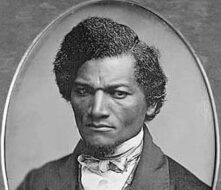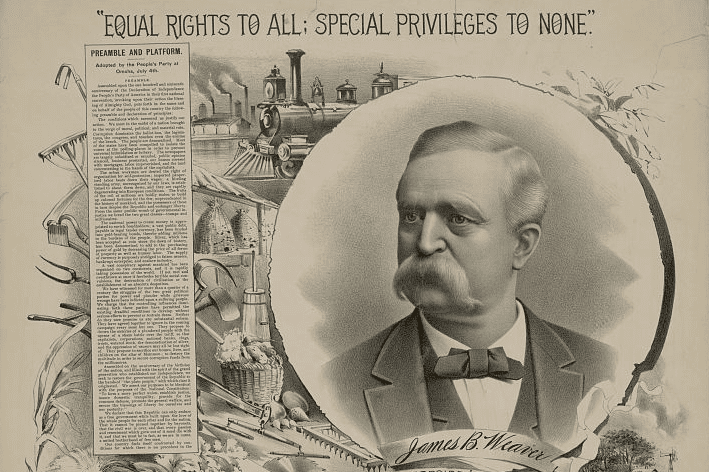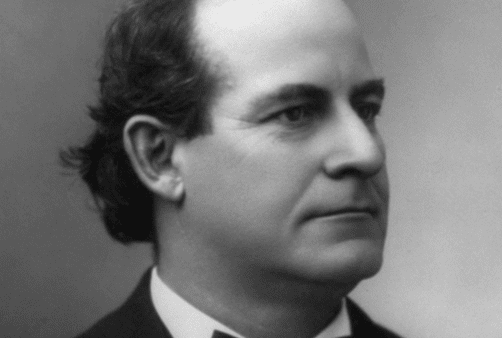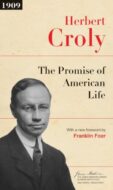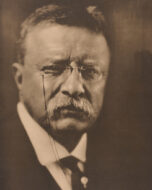
No related resources
Introduction
Ida B. Wells-Barnett (1862–1931) was a crusading journalist in the late nineteenth and early twentieth centuries whose primary cause was to focus public attention on the murders, or lynchings, of African Americans that became rampant in the decades after Reconstruction ended.
Born into slavery in Mississippi, Ida Wells was educated at nearby Rust College, a historically black institution founded in 1866. Orphaned as a teenager, she supported her five younger siblings, first by becoming a schoolteacher. She moved to Memphis, where she continued teaching and also began contributing articles to black periodicals and newspapers. Over the next few years the popularity of her publications broadened, and in 1889 she devoted her energies full time to journalism. She became editor of the Free Speech and Headlight, a black-owned and -operated paper in Memphis.
In 1892 Well’s friend Thomas Moss was murdered by a white mob, apparently because he opened a grocery store that competed with an older, white-owned store nearby. In Wells’ account of the event, an owner of the rival store entered Moss’ store and drew a pistol, provoking an altercation. When a “posse” of whites returned that evening, defenders of Moss’ store fired on the intruders and were then jailed. Shortly thereafter a mob removed Moss and two others from the jail and lynched them. This crime moved Wells to take up the antilynching cause that defined her career. In reaction to her writings on the subject, a white mob destroyed her Memphis office while she was away at a conference. Further threats to her personal safety forced her to leave Memphis. She eventually settled in Chicago, where in 1895 she married Ferdinand Barnett, an activist black lawyer with whom she had four children. She continued her work as a journalist and contributed also to the formation of several African American organizations, including the NAACP. Late in life she commenced writing her autobiography but was unable to complete it before her death in 1931. It was later published as Crusade for Justice.
This selection is from “Self-Help,” the final section of Southern Horrors, a pamphlet on lynching that Wells published in 1892 after Moss was killed.
Source: Ida B. Wells, Southern Horrors: Lynch Law in All Its Phases (New York, 1892); available at https://www.gutenberg.org/ebooks/14975.
In the creation of this healthier public sentiment, the Afro-American can do for himself what no one else can do for him. The world looks on with wonder that we have conceded so much and remain law-abiding under such great outrage and provocation.
To northern capital and Afro-American labor the South owes its rehabilitation. If labor is withdrawn capital will not remain. The Afro-American is thus the backbone of the South. A thorough knowledge and judicious exercise of this power in lynching localities could many times effect a bloodless revolution. The white man’s dollar is his god, and to stop this will be to stop outrages in many localities.
The Afro-Americans of Memphis denounced the lynching of three of their best citizens, and urged and waited for the authorities to act in the matter and bring the lynchers to justice. No attempt was made to do so, and the black men left the city by thousands, bringing about great stagnation in every branch of business. Those who remained so injured the business of the streetcar company by staying off the cars, that the superintendent, manager, and treasurer called personally on the editor of the Free Speech, asked them to urge our people to give them their patronage again. Other businessmen became alarmed over the situation and the Free Speech was run away that the colored people might be more easily controlled. A meeting of white citizens in June, three months after the lynching, passed resolutions for the first time, condemning it. But they did not punish the lynchers. Every one of them was known by name, because they had been selected to do the dirty work, by some of the very citizens who passed these resolutions. Memphis is fast losing her black population, who proclaim as they go that there is no protection for the life and property of any Afro-American citizen in Memphis who is not a slave.
The Afro-American citizens of Kentucky, whose intellectual and financial improvement has been phenomenal, have never had a separate car law until now. Delegations and petitions poured into the legislature against it, yet the bill passed and the Jim Crow1 car of Kentucky is a legalized institution. Will the great mass of Negroes continue to patronize the railroad? A special from Covington, Ky., says:
Covington, June 13—The railroads of the state are beginning to feel very markedly, the effects of the separate coach bill recently passed by the legislature. No class of people in the state have so many and so largely attended excursions as the blacks. All these have been abandoned, and regular travel is reduced to a minimum. A competent authority says the loss to the various roads will reach $1,000,000 this year.
A call to a state conference in Lexington, Ky., last June had delegates from every county in the state. Those delegates, the ministers, teachers, heads of secret and others orders, and the head of every family should pass the word around for every member of the race in Kentucky to stay off railroads unless obliged to ride. If they did so, and their advice was followed persistently the convention would not need to petition the legislature to repeal the law or raise money to file a suit. The railroad corporations would be so affected they would in self-defense lobby to have the separate car law repealed. On the other hand, as long as the railroads can get Afro-American excursions they will always have plenty of money to fight all the suits brought against them. They will be aided in so doing by the same partisan public sentiment which passed the law. White men passed the law, and white judges and juries would pass upon the suits against the law, and render judgment in line with their prejudices and in deference to the greater financial power.
The appeal to the white man’s pocket has ever been more effectual than all the appeals ever made to his conscience. Nothing, absolutely nothing, is to be gained by a further sacrifice of manhood and self-respect. By the right exercise of his power as the industrial factor of the South, the Afro-American can demand and secure his rights, the punishment of lynchers, and a fair trial for accused rapists.
Of the many inhuman outrages of this present year, the only case where the proposed lynching did not occur, was where the men armed themselves in Jacksonville, Fla., and Paducah, Ky., and prevented it. The only times an Afro-American who was assaulted got away has been when he had a gun and used it in self-defense.
The lesson this teaches and which every Afro-American should ponder well, is that a Winchester rifle should have a place of honor in every black home, and it should be used for that protection which the law refuses to give. When the white man who is always the aggressor knows he runs as great risk of biting the dust every time his Afro- American victim does, he will have greater respect for Afro-American life. The more the Afro-American yields and cringes and begs, the more he has to do so, the more he is insulted, outraged, and lynched.
The assertion has been substantiated throughout these pages that the press contains unreliable and doctored reports of lynchings, and one of the most necessary things for the race to do is to get these facts before the public. The people must know before they can act, and there is no educator to compare with the press.
The Afro-American papers are the only ones which will print the truth, and they lack means to employ agents and detectives to get at the facts. The race must rally a mighty host to the support of their journals, and thus enable them to do much in the way of investigation.
A lynching occurred at Port Jarvis, N.Y., the first week in June. A white and colored man were implicated in the assault upon a white girl. It was charged that the white man paid the colored boy to make the assault, which he did on the public highway in broad day time, and was lynched. This, too was done by “parties unknown.” The white man in the case still lives. He was imprisoned and promises to fight the case on trial. At the preliminary examination, it developed that he had been a suitor of the girl’s. She had repulsed and refused him, yet had given him money, and he had sent threatening letters demanding more.
The day before this examination she was so wrought up, she left home and wandered miles away. When found she said she did so because she was afraid of the man’s testimony. Why should she be afraid of the prisoner! Why should she yield to his demands for money if not to prevent him exposing something he knew! It seems explainable only on the hypothesis that a liaison existed between the colored boy and the girl, and the white man knew of it. The press is singularly silent. Has it a motive? We owe it to ourselves to find out.
The story comes from Larned, Kansas, Oct. 1, that a young white lady held at bay until daylight, without alarming anyone in the house, “a burly Negro” who entered her room and bed. The “burly Negro” was promptly lynched without investigation or examination of inconsistent stories.
A house was found burned down near Montgomery, Ala., in Monroe County, Oct. 13, a few weeks ago; also the burned bodies of the owners and melted piles of gold and silver.
These discoveries led to the conclusion that the awful crime was not prompted by motives of robbery. The suggestion of the whites was that “brutal lust was the incentive, and as there are nearly 200 Negroes living within a radius of five miles of the place the conclusion was inevitable that some of them were the perpetrators.”
Upon this “suggestion” probably made by the real criminal, the mob acted upon the “conclusion” and arrested ten Afro-Americans, four of whom, they tell the world, confessed to the deed of murdering Richard L. Johnson and outraging his daughter, Jeanette. These four men, Berrell Jones, Moses Johnson, Jim and John Packer, none of them twenty-five years of age, upon this conclusion, were taken from jail, hanged, shot, and burned while yet alive the night of Oct. 12. The same report says Mr. Johnson was on the best of terms with his Negro tenants.
The race thus outraged must find out the facts of this awful hurling of men into eternity on supposition, and give them to the indifferent and apathetic country. We feel this to be a garbled report, but how can we prove it?
Near Vicksburg, Miss., a murder was committed by a gang of burglars. Of course it must have been done by Negroes, and Negroes were arrested for it. It is believed that two men, Smith Tooley and John Adams, belonged to a gang controlled by white men and, fearing exposure, on the night of July 4, they were hanged in the court house yard by those interested in silencing them. Robberies since committed in the same vicinity have been known to be by white men who had their faces blackened. We strongly believe in the innocence of these murdered men, but we have no proof. No other news goes out to the world save that which stamps us as a race of cutthroats, robbers, and lustful wild beasts. So great is southern hate and prejudice, they legally hung poor little thirteen-year-old Mildrey Brown at Columbia, S.C., Oct. 7, on the circumstantial evidence that she poisoned a white infant. If her guilt had been proven unmistakably, had she been white, Mildrey Brown would never have been hung.
The country would have been aroused and South Carolina disgraced forever for such a crime. The Afro-American himself did not know as he should have known as his journals should be in a position to have him know and act.
Nothing is more definitely settled than he must act for himself. I have shown how he may employ the boycott, emigration, and the press, and I feel that by a combination of all these agencies can be effectually stamped out lynch law, that last relic of barbarism and slavery. “The gods help those who help themselves.”
- 1. “Jim Crow” refers to the system of legalized segregation in the South.

Conversation-based seminars for collegial PD, one-day and multi-day seminars, graduate credit seminars (MA degree), online and in-person.


















